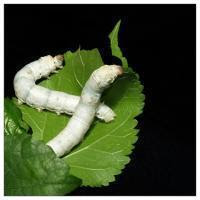Oct. 22, 2014
Dear Colleagues:
I am on a train from Aktobe to a southwest city Atyrau where
there is a village that played important role on the ancient Silk Road. The
train will run for 16 and 1/2 hours so I can take some time to write.
I have been in the city of Aktobe since yesterday afternoon.
Mr. Rakhym Beknazarov, a professor of Ethnography in the largest university in
the region, gave me a drive through the city. The population of the city is
only 300,000. The professor invited me to his home, where he, his wife and
children, and his parents live together. His mother and wife (a school teacher
in German language) prepared their national food Beshparmak (meaning meat eaten
with your fingers手抓肉). It was a mixture of beef
and horse meat. Rakhym’s father used to be a vet doctor; he is retired on a
pension of about $300 per month. Rakhym compared pension with Chinese in
Xinjiang (northwest of China with a long border with Kazakhstan), where a
pensionist (they used that funny word) could get $700 per month. Rakhym is a
big fan of his president. He thinks that his president has a strategy of
building a relationship between Kazakhstan and China like that of Canada and
the United States.
This morning I was taken to a local museum where I found
something unexpected: some gold pieces of Schythian-Saka time. It is good
evidence that the Schythian-Sakae were active in this area around 8th-7th
century BCE. The city is 90 km away from Russian border.
Kazakhs in the region are not nomadic anymore. They all
settle in the cities and villages. The climate here is not good for agriculture
although there are still farms growing some grains. Fruits, nuts, grains, are
mostly imported from southern region of the country or from abroad. There are
farms of horses, cattle, and sheep. The region has rich resources of oil, gas,
and chromium. People make livings by working for the oil/gas and rare minerals
industries. The largest foreign investor in the region is China. The
Sino-Petroleum Company built the highest building in the city. There is even a
Confucius Institute in the university. The second largest investor is Russia,
of course. Korea and Japan are after.
I wanted to go to Caspian Sea from Atyrau city (only 20 km
away), however, the road condition is very bad in this season; and also since
it is on the border, any foreigner would be charged for $495 for a permit which
must be applied at least a week in advance. So the trip to Caspian is
cancelled!
Interrupted.
Atyrau (continued to write on Oct.26): Ural River dividing
the city into Asia side and Europa side. I came back and forth several times within
a day between Asia and Europe! It is a small city, but two “golden men” were
found here; the guide in the local museum called these golden men Sarmatians as
being different from Schythian-Sakae (must check with scholarly interpretation).
A village called ???? was originally built in 10th century, later
destroyed by Chingiskhan, rebuilt again, but eventually abandoned (because of
the dry off the river?). It used to be a large kingdom in the region and an
important stop for caravan merchants on the Silk Road. A Spanish traveler of
the 15th century traveled here and wrote about the town.

No comments:
Post a Comment